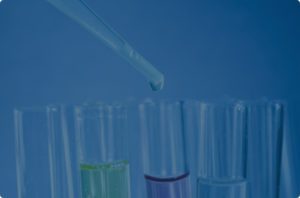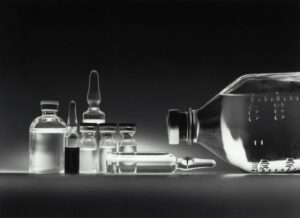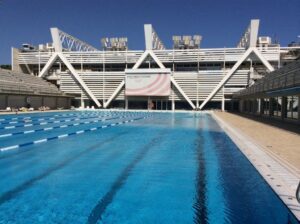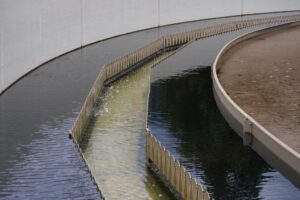02/13/2023 | Industrial Water Treatment | 9 MINUTE READ
Industrial Laundry Water Quality and Safe, Effective Cleaning
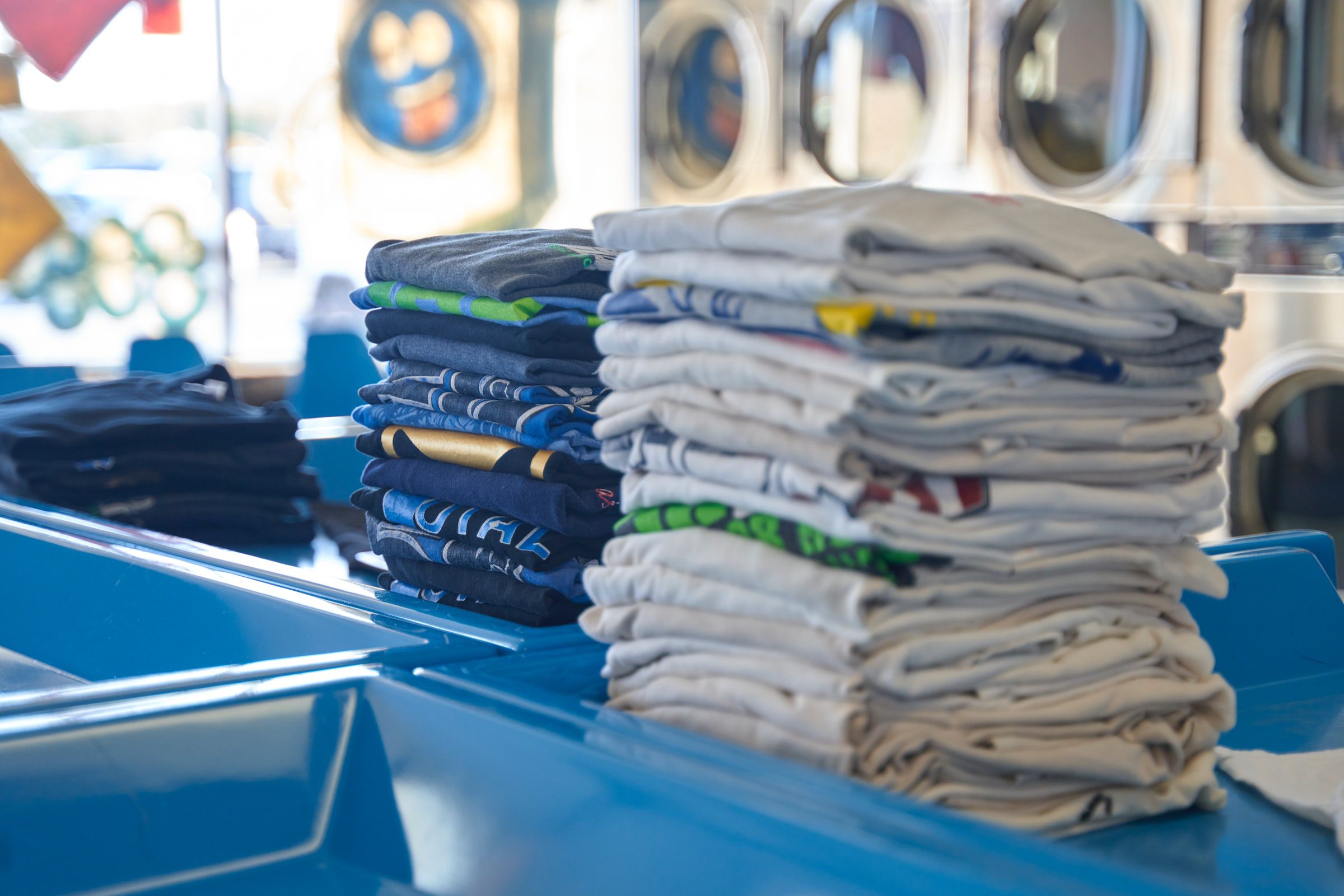
Water is one of the primary components used in any laundry process. The quality of the water that’s used during this process directly impacts the wear life and appearance for textiles and clothing. The primary concern among many industrial laundries involves the hardness present in the water they use. If this issue is present, a higher amount of synthetic detergents and soap will be required to keep the laundry from being damaged.
Water is a fantastic solvent. When this liquid moves through rock and soil, it’s able to dissolve small amounts of minerals. These minerals will remain in the solution. The main minerals that cause water hardness include magnesium and calcium. Other dissolved metals, silicates, sulfates, and bicarbonates can also increase the amount of hardness in the water.
The primary utilities that are used during the laundry process include chemicals, water, and electricity. Industrial laundry owners strive to keep utilities low to make sure that expenses don’t get out of control. If the water used by the laundry facility contains high hardness levels, the facility must focus on maintaining the correct water chemistry to make sure that the water is softened enough to clean clothes without issue. In this guide, you’ll discover how important water quality is for industrial laundry facilities.
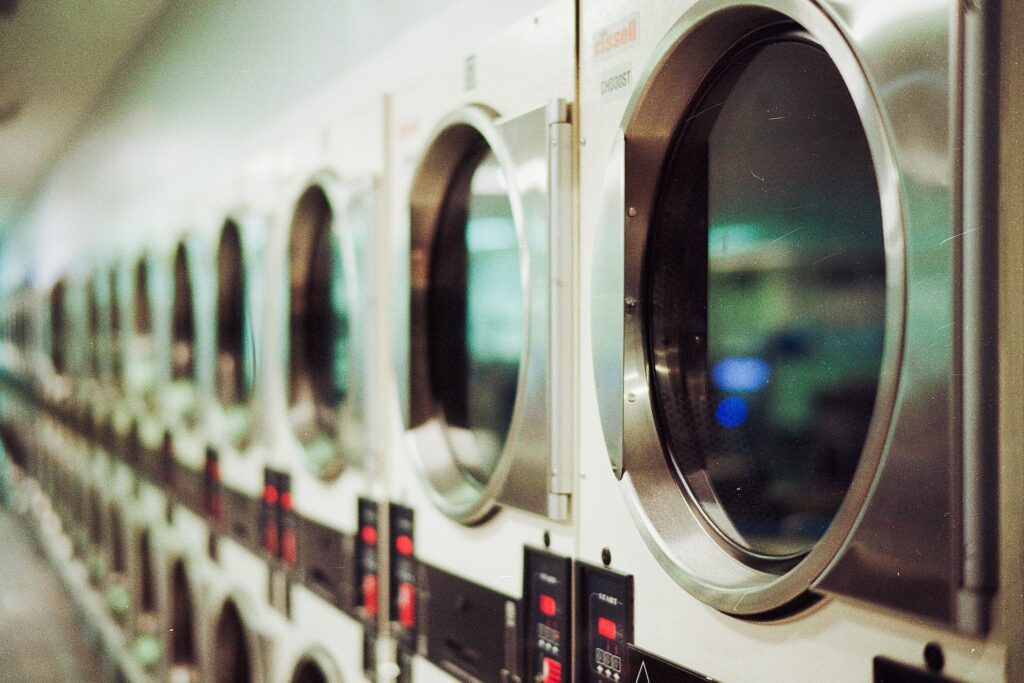
What is Hard Water?
Hard water occurs when certain minerals have become dissolved in the water. Magnesium and calcium carbonate are the main minerals that can increase the hardness of a water sample. Hardness is typically measured in mg/liter. In order to achieve soft water, the concentration of magnesium and calcium in the water should be lower than 60 mg/l, which stands for milligrams per liter.
In the event that the concentration is between 60-120 mg/l, the water quality is moderately hard. Any readings between 120-180 mg/l would constitute hard water quality. When mineral concentrations are higher than 180 mg/l, the water quality is extremely hard.
If someone consumes high amounts of hard water for a lengthy period of time, the chance of suffering from kidney stones is much higher. Minerals and salts are unable to be filtered through your kidneys, which can result in calcium stones forming. Ground water is usually harder than surface water.
It’s difficult for soaps and detergents to dissolve in hard water. You’ll also find that the presence of minerals makes it difficult to lather the soap. The magnesium that’s present in hard water reacts directly with stearate to create magnesium stearate. Along with making it more difficult to lather, it also leads to the development of soap scum along the side of your bathtub. When scaling develops in a water pipe line, it will appear as a white deposit of calcium carbonate.
How Does Hard Water Affect Laundry?
Soap is considerably less effective when used in hard water because of the chemical reaction that occurs when magnesium or calcium ions interact with the detergent. This reaction is capable of creating salts that will precipitate out of the solution.
This type of salt is oftentimes referred to as soap scum that builds up wherever the wash solution reaches. You may notice traces of soap on clothes, in the drain, on the door glass, and inside the washer. It’s also likely that white clothing will take on a yellow-gray hue over time. Darker colors may fade. If you use softer fabrics, they will become scratchy and brittle when exposed to hard water.

Why Does Soap Not Work With Hard Water?
When you use soap, it has a cleansing action that can be disrupted with hard minerals. When soap comes into contact with these minerals, it will form magnesium salts or insoluble calcium. Soaps are potassium or sodium salts of long-chain fatty acids. When soap is dissolved in hard water, the magnesium and calcium ions will displace the potassium and sodium ions to form magnesium salts and insoluble calcium.
The Cleaning Action of Soap on Clothes
Soap has a highly effective cleaning action when applied to clothes. Let’s say that a piece of cloth has been stained by oil. Once it’s placed in soapy water, the soap molecule will become embedded in the clothes. This molecule consists of a hydrophilic part and a hydrophobic part.
The hydrophobic part is able to get into the stains directly. As for the hydrophilic part, it’s attracted to the water. If the molecules that are embedded on the stain increase in number, the stains will be pulled into the water, which results in the cloth becoming cleaned.
In the event that there are more ions of magnesium and calcium in the water, the calcium will react with nearby water molecules to create an inert complex. These molecules will then avoid taking part in getting rid of stains in clothes.
When using hard water, at least 30% more detergent must be used to properly clean the clothes. The water temperature will also need to be higher. Both of these problems will result in the operating cost of a laundry facility increasing.
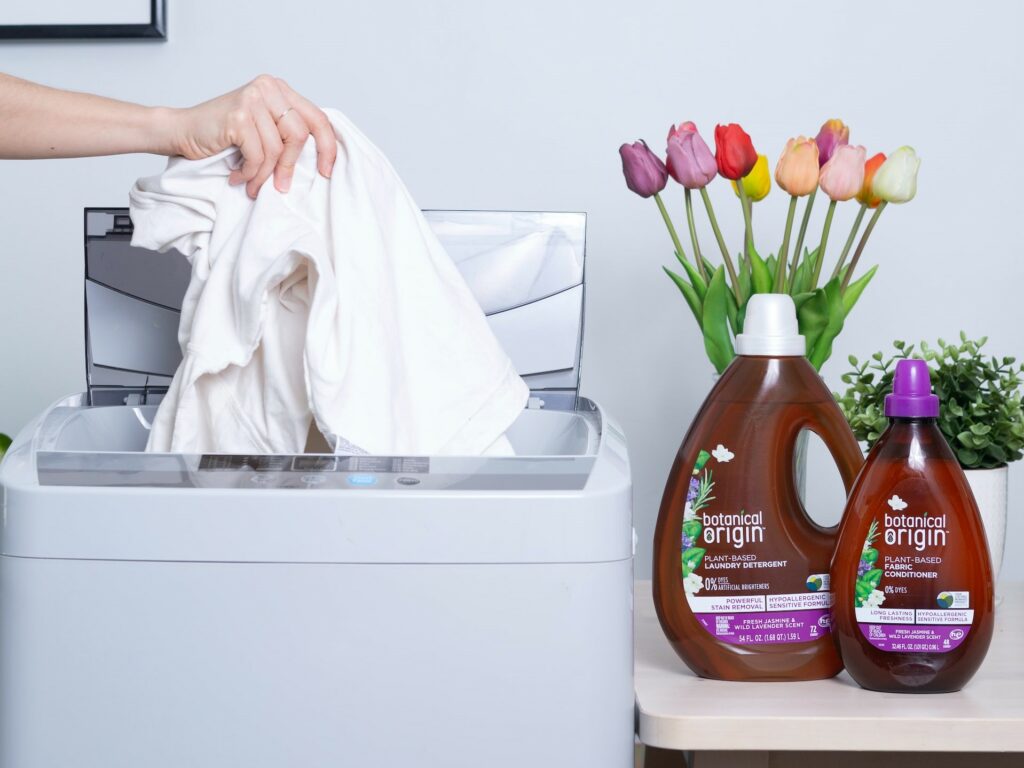
Disadvantages of Hard Water
There are many disadvantages of hard water when it comes to industrial laundry equipment and the quality of clothes. These issues include everything from worse water heater efficiency to mineral accumulation in pipe lines and appliances.
Mineral Build-up in Appliances and Pipe Lines
When minerals accumulate in pipe lines, appliances, and other industrial equipment, scale deposits will develop in the affected areas, which can create substantial issues with unit efficiency.
Reduces Efficiency of Water Heaters
As mentioned above, hard minerals increase the likelihood of scale buildup in water heaters and other appliances. If this problem is left untended, system efficiency could worsen. Over time, operating costs in your facility would increase significantly.
Produces Corrosion and Rust
Even though hard water isn’t considered to be a health concern, it can cause metal parts in your facility to corrode, which degrades the quality of the appliances you’re using. A complete system malfunction may eventually take place.
It Makes Laundry Feel Stiffer and Look Less Vibrant
The magnesium and calcium minerals that are present in hard water replace the primary molecules in soap, which can result in your clothes appearing less vibrant and feeling stiffer.
Testing for Hard Water
If you want to test for hard water in your industrial facility, there are several sensors you can use to obtain the necessary results. There are many different types of water quality sensors at your disposal, the primary of which is an oxidation reduction potential (ORP) sensor.
The readings you obtain from this sensor should help you determine how hard the water is. There are also a couple visual indicators that tell you that the water likely contains high concentrations of magnesium and calcium. For instance, hard water will leave behind soap scum in your bathtub and sinks. Scale buildup will also occur in most of the appliances that use water in your facility. You can mitigate this problem with a laundry water softener.
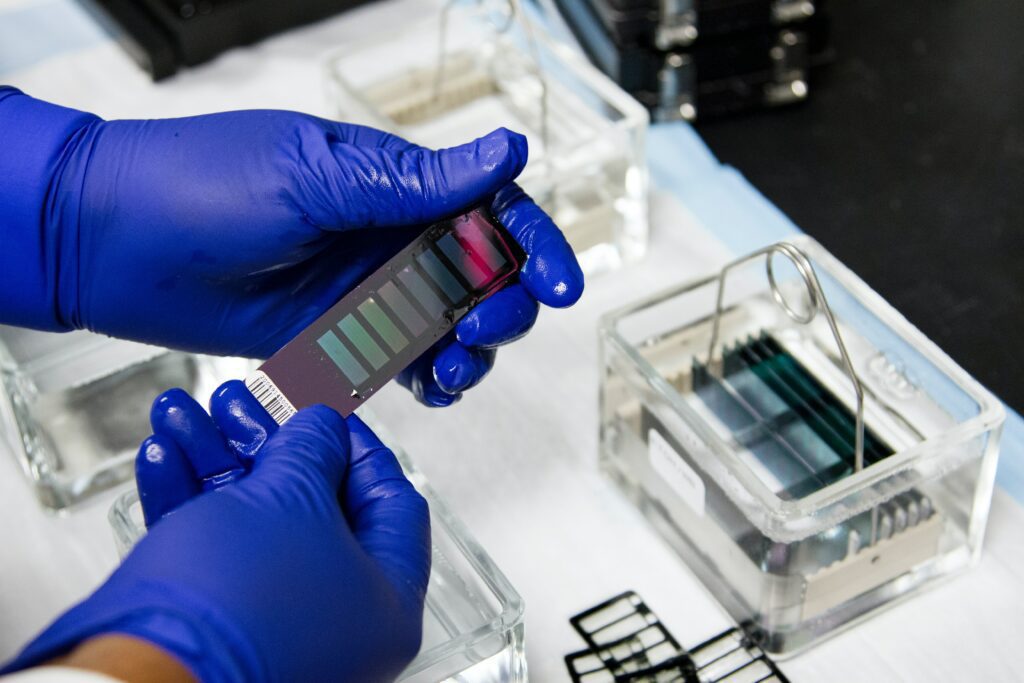
What is Laundry Water Softener?
Laundry water softeners are designed to reduce the amount of contaminants in the water while also eliminating scale buildup. When you use a water softener on a regular basis, the lifespan for your laundry appliances should be extended. If your laundry water softener is an ion exchange system, it will be able to remove all contaminants and metal particles from your water, which leaves behind soft water.
These systems are designed to run water from the primary water supply line through a tank consisting of a resin. The ionic resin beads are capable of removing all types of hard minerals, which include magnesium, calcium, and iron. The primary tank in a water softener system comes with a resin that’s used to clean the water. As for the second tank, it holds the salt. At the bottom of the second tank is some water that mixes with the salt to form a salt brine.
The salt brine is eventually flushed into the other tank to wash away any hardness ions that have accumulated. These ions will then be sent into a wastewater drain for full disposal. Maintaining water softeners is simple and only requires the addition of bags of salt directly into the tank. Check the tank every few weeks to identify the current salt levels. When salt levels are low, add more. These machines should last for anywhere from 15-20 years when properly maintained.
The Advantages of Using Water Softener
There are numerous advantages of using a water softener, which include everything from lower energy costs to clothes feeling cleaner. If you’re using hard water in the laundry process, make sure that you use liquid detergents as opposed to powdered ones. Liquid detergents are more capable of getting rid of hard minerals and preventing soap scum from forming.
Lower Your Energy Costs
Since your appliances will be able to maintain a higher efficiency, your monthly energy costs will be lower.
Reduce the Amount of Soap Needed
Having a water softener installed allows you to reduce the amount of soap you need. As mentioned earlier, hard water requires at least 30% more soap to obtain the same effects.
Extend Plumbing Lifetime
When scale builds up in your facility’s plumbing system, the system itself will degrade over time. You can mitigate this problem with a water softener, which will extend your plumbing system’s lifespan.
Clothes Feel Silkier and Look More Vibrant
Since the hard minerals will no longer replace the ones that are found in soap, you should notice that clothes feel silkier and look more vibrant. You’ll no longer need to worry about the colors fading.
Your Skin Will Feel Much Softer
Soft water doesn’t contain as many minerals, which means that your skin will be able to retain moisture easier. If you shower or bathe in hard water, the water will remove the natural oils in your skin that keep irritation at bay.
Water softeners are great investments for industrial laundry facilities that are experiencing hard water problems. Along with improving the quality of the clothes that are washed, installing a water softener is also beneficial to the environment since less detergent will be sent down the drain. Facility appliances and plumbing will also remain in good condition.
Posted by Dominic O'Donnell on February 13, 2023
Sensorex is a global leader in the design and manufacture of quality sensors for water quality and process applications. The company offers more than 2000 sensor packages for pH, ORP, conductivity, dissolved oxygen, free chlorine, chlorine dioxide, UV transmittance and other specialty measurements, as well as a full line of sensor accessories and transmitters. Its expert technical support engineers solve analytical sensor challenges with custom designs and off the shelf products.
